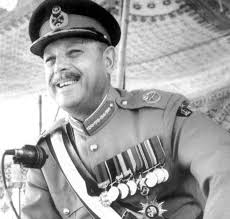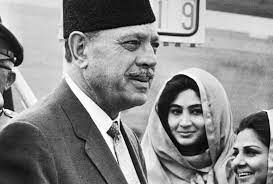End of Year 2021 – Note 1 – Pharma Veterans’ Blog Post #577 by Asrar Qureshi
End of Year 2021 – Note 1 – Pharma Veterans’ Blog Post #577 by Asrar Qureshi
Dear Colleagues! This is Pharma Veterans’ Blog Post #577. Pharma Veterans welcome sharing of knowledge and wisdom by Veterans for the benefit of Community at large. Pharma Veterans Blog is published by Asrar Qureshi on WordPress, the top blog site. Please email to asrar@asrarqureshi.com for publishing your contributions here.
Another year is closing on us. It is customary to look back and review the year closing by, I would like to do a bit of that and some more.
There are some recurring events which keep us connected to the past. Closest to today was 16 December which was linked to the secession of East Pakistan on this date in 1971, exactly 50 years ago. The other which happened seven years ago was the tragic event of Army Public School, Peshawar. Both required deep soul searching, but we did not go beyond grieving, making empty claims of rooting out terrorism and let the intensity of event wane off, naturally.
Ayub Khan led apparently successfully. He was on personal terms with American and European leaders, many of whom were also war veterans. Pakistan saw spurts of industrial and agricultural growth. Scores of new institutions were formed which are still working in Pakistan and Bangladesh. For example, Pakistan Institute of Management – PIM, is working with the same name in Pakistan and as BIM in Bangladesh.
Ayub Khan was a dictator anyway who was further waylaid by aides and advisors. Our political alignments and strategic decisions were influenced by our relationship with US and Europe which was in severe conflict with Soviet Union and Eastern bloc. The Cold War was raging, and the US was struggling to keep communism at bay. It was frantic. Senator McCarthy in US and likes were alleging, accusing, and prosecuting people on the slightest pretext of being pro-communism. Lots of people got excommunicated and barred for years. We were with the US and West, and therefore against communism, although we did have a small communist party and the Soviet literature flowed in Pakistan freely. Cases of treason were established against Faiz Ahmed Faiz, Sajjad Zaheer and many others. It was the famous ‘Rawalpindi Saazish Case’. There was an ‘Attock Saazish Case’ also; the ‘Agartala Saazish Case’ implicated Sheikh Mujeeburrehman from Bangladesh for treason and seceding East Pakistan from West Pakistan.
Ayub Khan government celebrated ‘A Decade of Progress – 1958 to 1968’ in 1968. It was supposed to be spread over the entire year 1968, but many people disagreed and called it ‘Decay of Progress’. A popular uprising started against Ayub Khan who did not linger on for long and left. However, he took revenge from the nation by handing over to the good-for-nothing General Yahya Khan.
My first thought after hearing the news of Martial Law was that probably schools would be closed. It did not happen, and life went on as usual. General Yahya Khan bungled up everything and no one could stop him. An armed conflict in East Pakistan running actively for over a year, a brief war with India in December 1971, East Pakistan was separated, and proclaimed independence as Bangladesh. Sheikh Mujeeburrehman who had been released from a Pakistan prison earlier and flown to Dhaka, took over as the first Head of government in Bangladesh.
Long story short, we took the breakup with a brave face and went on with more empty slogans to counter our grief. Few years back, daughter of Sheikh Mujeeb and present prime minister of BD, Sheikh Hasina Wajid published a book titled ‘The Unfinished Memoirs’ which sold in Pakistan also. It was based on the personal notes of her assassinated father Sheikh Mujeeb. Serious people should read it to remove the illusions they might have been carrying for long.I visited Dhaka in 2004 for business and stayed there for 5 days. I met many people in business and industry, went to markets, shopped, and moved around freely. On the first day, I hired a taxi and asked him to stay with me for the whole day so that I could go to multiple places easily. We started off and started talking in English. After a few minutes, he asked ‘Urdu aata hai – know Urdu’? I said of course. He said, ‘tou Urdu main baat karo na – please talk in Urdu’. For the next five days, we talked in Urdu, in which he was fluent. He took me to markets also where many people recognized me as Pakistani and insisted on speaking Urdu. I am not suggesting they are dying to reunite with Pakistan; only highlighting that people may have a mindset different from the governments.
The most serious omission is that we never discussed this topic objectively. We huffed and puffed and sat and stood and wrote long books and reports and theses, which failed to identify the real reasons. This is our usual style, focusing on peripheral issues only and ignoring the core issues.
Concluded.
Disclaimer. Most pictures in these blogs are taken from Google Images which does not show anyone’s copyright claim. However, if any such claim is presented, we shall remove the image with suitable regrets.







Comments
Post a Comment